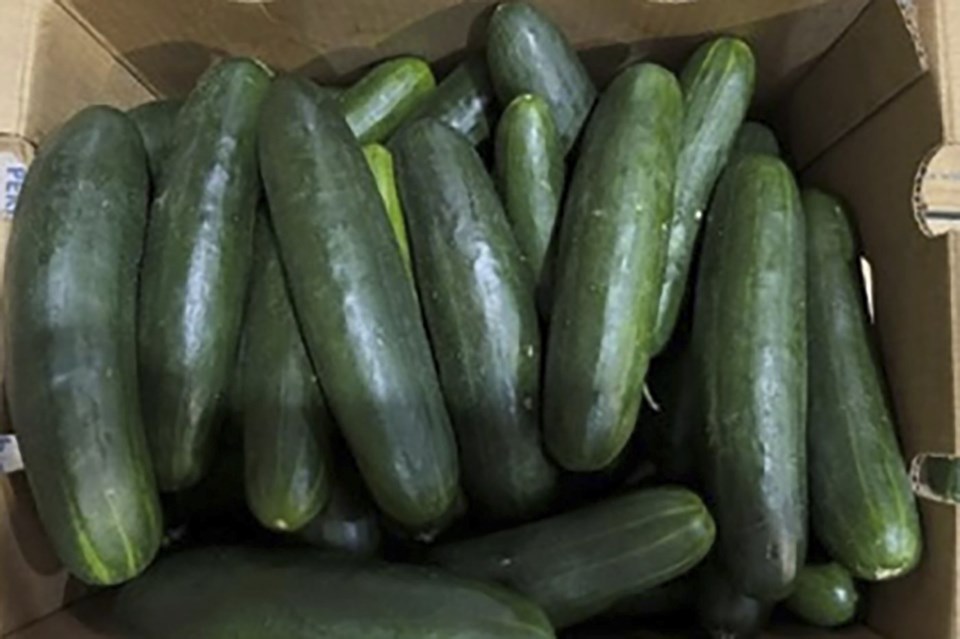The Canadian Food Inspection Agency is recalling another batch of cucumbers from Mexico due to possible salmonella contamination, less than a week after another similar recall.
The agency says the latest batch of Mexican produce being recalled were sold primarily in British Columbia and Alberta between Oct. 12 and Nov. 29, but may have also been distributed in other jurisdictions.
The Pamela brand cucumbers may have been sold loose without the brand name, and the agency is asking consumers with the produce to discard it or return it to the point of purchase instead of eating it.
The recall comes after an American distributor of the produce made its own recall of cucumbers and indicated some batches may have made their way to Canada.
The Canadian Food Inspection Agency had said yesterday that it was conducting an investigation based on the American distributor's statement and could issue a recall in Canada if required.
The American distributor, Baloian Farms of Arizona Co., says the affected cucumbers may have been shipped to customers in several U.S. states such as Washington, Oregon, Montana, Michigan and Wisconsin in addition to B.C. and Alberta in Canada.
Last week, the agency issued another warning for SunFed branded cucumbers also from Mexico that were sold in B.C., Alberta, Saskatchewan, Manitoba and Ontario due to possible salmonella contamination.
Health Canada says if infected by salmonella, symptoms usually begin six to 72 hours after consumption and can range from fever and chills to more severe infections in young children and elderly people.
This report by The Canadian Press was first published Dec. 4, 2024.
The Canadian Press



